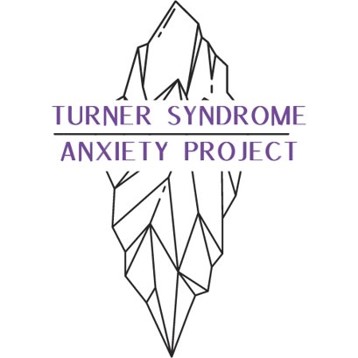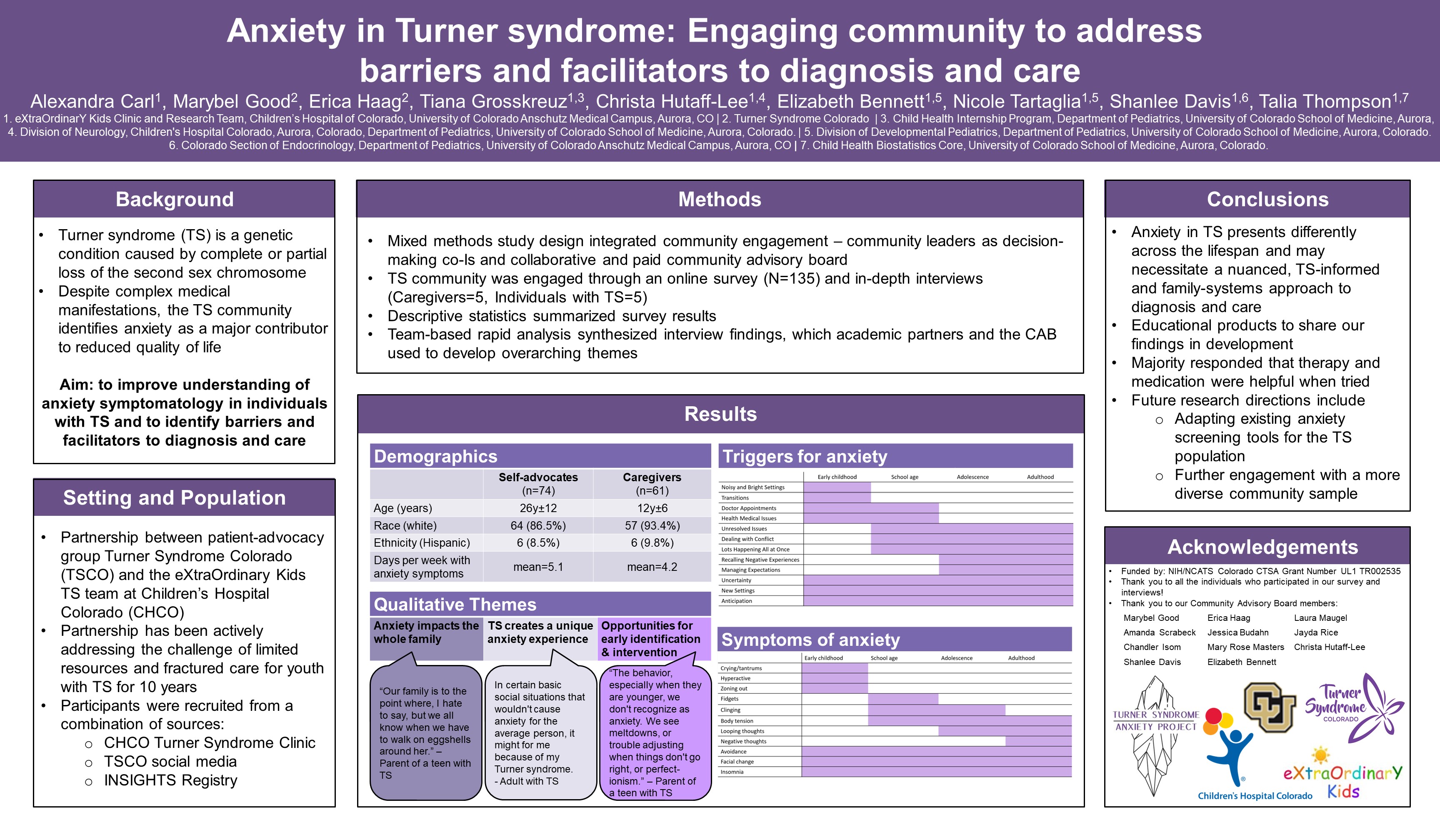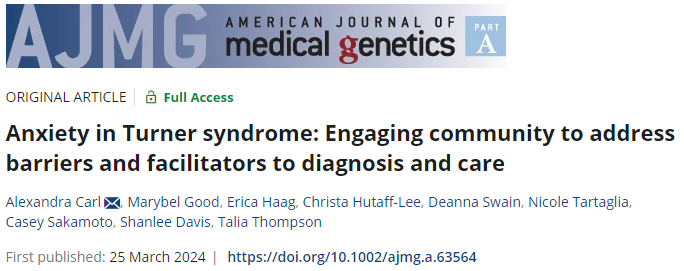Turner Syndrome Anxiety Project

Currently enrolling projects:
At the request of parents, doctors, and individuals with Turner Syndrome, our team has created the Turner Syndrome Anxiety Project. This project is a collaborative effort with the InsighTS Registry and Turner Syndrome Colorado designed to help us better understand what anxiety looks like in Turner syndrome. We have already learned a lot from this project so far but we aren’t done yet!
RATE: Recognizing Anxiety in Turner Syndrome Early
COMIRB 23-1584 | PI Dr. Talia Thompson | Funder Ludeman Foundation
Whether or not anxiety affects you or your child, your participation is still wanted!
If you join this study, you and/or your child will be asked to complete two questionnaires. Parents who have participated in RATE have completed all study surveys in ~35 minutes, while children have completed theirs in ~20 minutes. You will also be asked to retake one of the questionnaires (~5 minutes long) 2 weeks after initial completion. We will pay you $10 for participating in this study.
If you are already an InsighTS participant between the ages of 8 and 18, you may have gotten an email about participating in this study. Check your inbox or spam folder! Contact the study team at [email protected] with any questions or to participate.
Previously completed studies:
Anxiety in Turner Syndrome
COMIRB 20-0550 | PI Dr. Talia Thompson | Funder CCTSI
This study helped us learn more about what anxiety looks like in Turner syndrome across the lifespan. We aimed to learn about the life experience of girls with Turner syndrome and anxiety to help develop a screening tool to better detect anxiety in Turner syndrome patients. Participants completed a one-time online survey about their experience with anxiety symptoms, triggers, and coping mechanisms. A few participants also completed one-on-one interviews with our study team.
Our results have been published and presented!
Newsletters
Publicly available results for families and patients
The first year of our project, Anxiety in Turner Syndrome, had many findings and it was hard to narrow down what was the most important and how to share that with the community. Our community advisory board came up with the Top 10 Things We Learned from the study. This video, available on YouTube, outlines the study and what we learned:
In addition to the video, our team created three fliers to help folks better understand what anxiety can look like for individuals with Turner syndrome. We have a flier for parents of individuals with Turner syndrome, individuals with Turner syndrome, and teachers.
Presentations at academic conferences
At the 2023 Colorado Pragmatic Research in Health Conference, Alexa Carl, a research coordinator, presented " Anxiety in Turner syndrome Engaging community to address barriers and facilitators to diagnosis and care." The main results presented were that anxiety in Turner syndrome presents differently across the lifespan. Approaches to diagnosis and care of anxiety in this population may need to be informed by Turner syndrome and focused on the family system. The majority of individuals who had tried medication or therapy for anxiety found it helpful.

At the 2024 meeting of the Western Society for Pediatric Research (WSPR), Alexa presented an extension of these results and won an outstanding abstract award. She was able to give an oral presentation where she stressed how important the community engagement process was to a successful project. You can read her abstract and all conference abstracts here:
Still to come: At the 2024 Colorado Pragmatic Research in Health Conference, Alexa Carl will present data on the first aim of our current RATE study, "Recognizing Anxiety in Turner syndrome Early: Community Engaged Development of a Patient-Centered Outcome Measure." In this aim, we conducted 10 cognitive interviews to help guide adaption of the SCARED to better identify anxiety in individuals with Turner syndrome. These interviews confirmed the need for a Turner syndrome-specific anxiety outcome measure. Our community advisory board adjusted the SCARED based on these interviews, including editing problematic words, simplifying the Likert scale, and adding a “TS Health Anxiety” subdomain.
Peer-reviewed manuscripts
Published in March of 2024, Anxiety in Turner syndrome: Engaging community to address barriers and facilitators to diagnosis and care highlighted the main results of the first year of the Turner Syndrome Anxiety Project.

Here is a summary: This paper aimed to improve understanding of anxiety symptomatology, diagnosis, and care in individuals with Turner syndrome. A mixed methods design integrated community engagement throughout the project. The majority of respondents reported that anxiety symptoms occur two or more days per week, with self-advocates (which refers to individuals with Turner syndrome who answered the survey for themselves) reporting more frequent symptoms than caregivers. Both self-advocates and caregivers reported anxiety-related behaviors were most likely to be expressed at home. Insomnia was the most common symptom of anxiety endorsed across age and rater groups. Anxiety symptoms and triggers changed with age and often were undiagnosed or untreated during childhood. Therapy and medication were reported as helpful by most respondents who had tried these strategies. Qualitative themes included: ‘Triggers for anxiety are related to TS’, ‘Anxiety impacts the whole family’, and ‘Opportunities for early identification and intervention’. Read the full paper here.